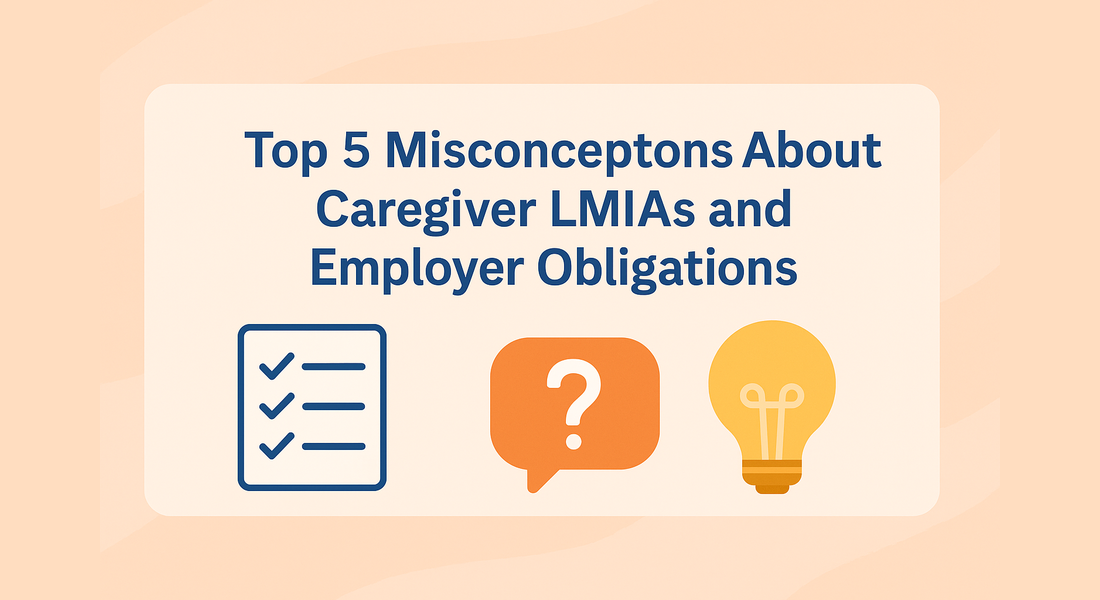Hiring a caregiver in Canada through the Labour Market Impact Assessment (LMIA) process can feel overwhelming for families. Unfortunately, many myths and misconceptions make the process seem more confusing than it is.
Here are the top 5 misconceptions about caregiver LMIAs and employer obligations — and the truth behind them.
1. Misconception: Employers Are Tied to a Caregiver Forever
Reality: Employers are not permanently locked in. While the LMIA is specific to the employer, job, and caregiver, families can:
- End employment in compliance with labour laws.
- Request a name change on the LMIA before a work permit is issued.
- Apply for a new LMIA if they need a replacement caregiver.
2. Misconception: Employers Can Deduct the LMIA Fee From the Caregiver’s Wages
Reality: Employers must pay the $1,000 LMIA fee themselves. It is illegal to recover the fee or recruitment costs from the caregiver.
3. Misconception: Wages Can Be Negotiated Below the Provincial Median
Reality: Caregivers must be paid at least the provincial or territorial median wage for their NOC code. Offering less will result in LMIA refusal.
4. Misconception: Employers Can Change Job Duties After LMIA Approval
Reality: The LMIA approval is tied to the job description submitted. Changing the NOC code, duties, or reducing wages/hours usually requires a new LMIA.
5. Misconception: Employers Cannot End the Employment Relationship
Reality: Employers maintain the right to terminate employment if things don’t work out, provided:
- Termination notice or pay rules are followed under provincial standards.
- The caregiver receives all owed wages and benefits.
Key Takeaways
- Employers have obligations, but they are not without flexibility.
- Families cannot shift LMIA costs to caregivers.
- Wages and job duties must meet LMIA requirements.
- Ending the arrangement is possible, but must respect Canadian labour laws.
👉 By understanding these truths, families can avoid common pitfalls and approach the LMIA caregiver process with confidence.

